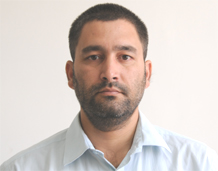The Army’s Subculture in the Coming Decade
The Indian Army is likely to come under assault from changes occurring within society which are predicted to speed up considerably over the coming decade.
- Published: December 22, 2009

Archive data: Person was Research Fellow at IDSA from July 2008 to February 2012
Joined IDSA
July 2008
Expertise
Defence doctrine and strategy, Military Affairs, Internal security, Military sociology Education
MPhil in International Relations (Cantab), MA in War Studies (London), MSc in Defence and Strategic Studies (Madras)
Current Project
Defence Doctrines in the India-Pakistan context
Background
A former infantry colonel, he has participated in counter insurgency operations in India and in Sri Lanka. He has been a miiltary observer in a UN peackeeping mission. In 1999-2000, he was Ministry of External Affairs Fellow at the United Service Institution of India, New Delhi. He has submitted his doctoral dissertation in International Politics at Center for International Politics, Organisation and Disarmament, School of International Studies, Jawaharlal Nehru University, New Delhi. His articles have appeared in idsa.in, claws.in, ipcs.org, foreignpolicyjournal.com and in professional journals.
Select Publications
Monograph: Reconciling Doctrines: Prerequisite for Peace in South Asia, IDSA Monograph Series No. 3, 2010
Edited Book: Ali Ahmed, J Panda and Prashant Singh (eds.), Towards a New Asian Order, New Delhi: Shipra Publications, 2012.
Book Chapter: ‘Countering Insurgency in Jammu and Kashmir: Debates in Indian Army’ in Maroof Raza (ed.), Confronting Terrorism, New Delhi: Penguin Books, 2009.
Other publications.
Research Fellow
Email: aliahd66[at]hotmail[dot]com
Phone: +91 11 2671 7983